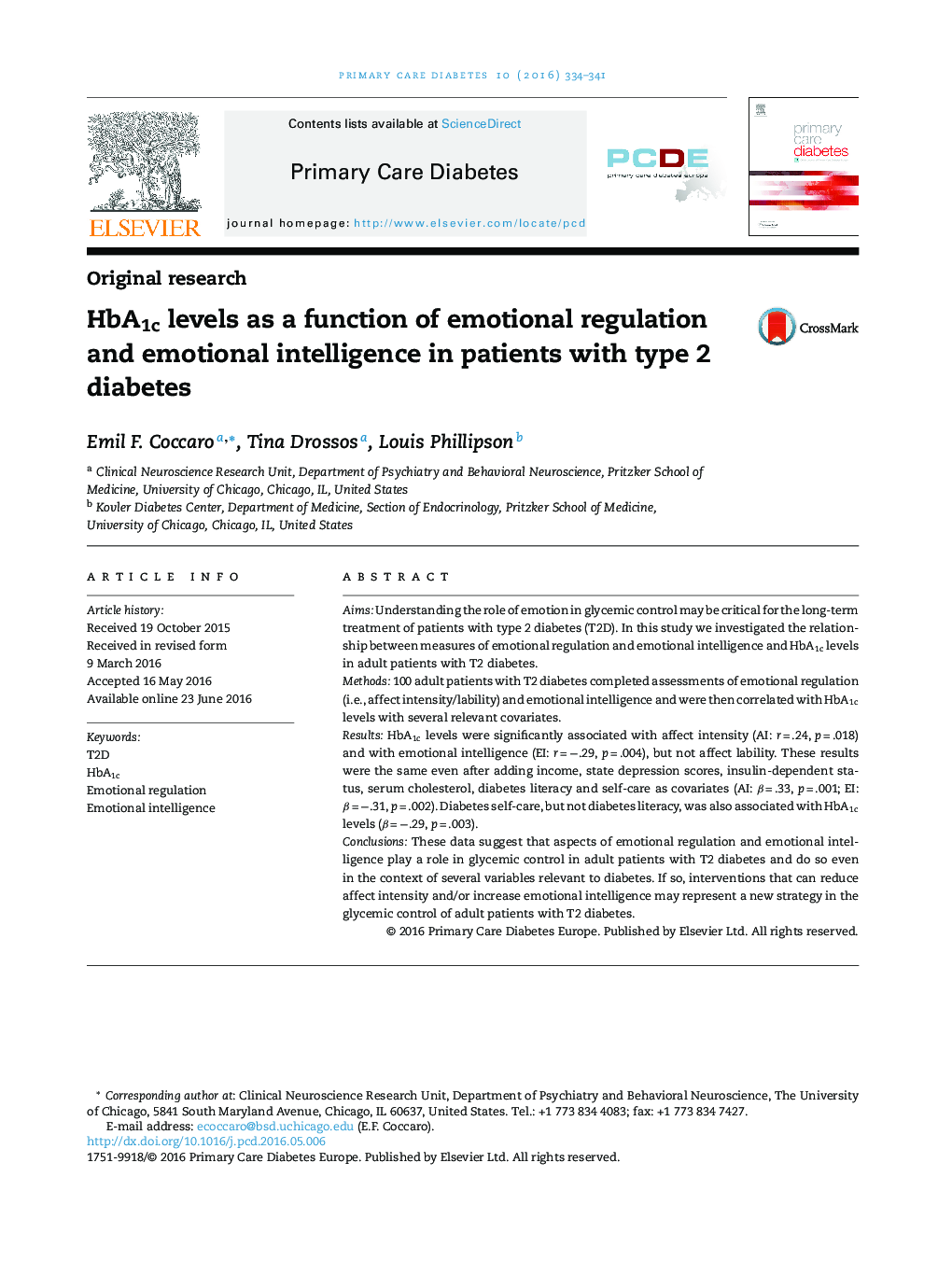| کد مقاله | کد نشریه | سال انتشار | مقاله انگلیسی | نسخه تمام متن |
|---|---|---|---|---|
| 2679002 | 1403806 | 2016 | 8 صفحه PDF | دانلود رایگان |
• Few studies have examined the relationship between emotional regulation and emotional intelligence and HbA1c serum levels in adult patients with T2 diabetes.
• A positive relationship between emotional intensity, and an inverse relationship between emotional intelligence, and HbA1c serum levels was found.
• Together, these aspects of emotional regulation and intelligence explain 12% of the variance in serum HbA1c levels above and beyond other factors typically studied.
• Dimensions of emotional regulation and intelligence may represent new targets for intervention in patients with T2 diabetes.
AimsUnderstanding the role of emotion in glycemic control may be critical for the long-term treatment of patients with type 2 diabetes (T2D). In this study we investigated the relationship between measures of emotional regulation and emotional intelligence and HbA1c levels in adult patients with T2 diabetes.Methods100 adult patients with T2 diabetes completed assessments of emotional regulation (i.e., affect intensity/lability) and emotional intelligence and were then correlated with HbA1c levels with several relevant covariates.ResultsHbA1c levels were significantly associated with affect intensity (AI: r = .24, p = .018) and with emotional intelligence (EI: r = −.29, p = .004), but not affect lability. These results were the same even after adding income, state depression scores, insulin-dependent status, serum cholesterol, diabetes literacy and self-care as covariates (AI: β = .33, p = .001; EI: β = −.31, p = .002). Diabetes self-care, but not diabetes literacy, was also associated with HbA1c levels (β = −.29, p = .003).ConclusionsThese data suggest that aspects of emotional regulation and emotional intelligence play a role in glycemic control in adult patients with T2 diabetes and do so even in the context of several variables relevant to diabetes. If so, interventions that can reduce affect intensity and/or increase emotional intelligence may represent a new strategy in the glycemic control of adult patients with T2 diabetes.
Journal: Primary Care Diabetes - Volume 10, Issue 5, October 2016, Pages 334–341
